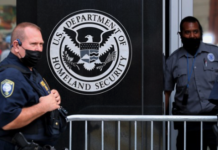In a move that already has the political left hyperventilating, Israel has officially agreed to a Trump-led proposal for a 60-day ceasefire in Gaza.
That’s right—Trump is brokering peace in the Middle East again. And just like the first time with the Abraham Accords, it’s not going through backroom UN deals or endless bureaucratic summits—it’s happening with direct talks, firm terms, and pressure that actually means something.
On Tuesday, Trump took to Truth Social to share the update, saying, “My Representatives had a long and productive meeting with the Israelis today on Gaza. Israel has agreed to the necessary conditions to finalize the 60 Day CEASEFIRE.” He added that Qatar and Egypt—two nations who’ve been walking a tightrope for months—will be the ones to deliver the final offer to Hamas.
🚨 BREAKING: President Trump announced Israel has agreed to a 60 DAY CEASEFIRE in Gaza, during which time they’ll work to formally end the war
The Peace President NEVER stops! 🔥 pic.twitter.com/4DP0G0kvjg
— Nick Sortor (@nicksortor) July 1, 2025
Now here’s where things get interesting. Trump didn’t tiptoe around the facts. He made it clear: this is the deal, take it or leave it. “I hope, for the good of the Middle East, that Hamas takes this Deal, because it will not get better — IT WILL ONLY GET WORSE.” No political doublespeak. No soft language. Just a straight warning: this is the best offer on the table, and if Hamas thinks there’s a sweeter one coming from the Biden benchwarmers, they might want to think again.
But let’s step back for a moment.
While the Biden administration has been busy hosting climate panels and virtue-signaling on TikTok, Trump’s team has been actively rebuilding what was once the most promising peace initiative in the region—the Abraham Accords. And make no mistake, this 60-day ceasefire is not just about cooling tensions. It’s a power play. A serious opening move in Trump’s larger goal of expanding the Accords and pushing countries like Syria and Lebanon into normalization with Israel.
🚨 BREAKING: Hostage and ceasefire deal in Gaza had nothing to do with Biden, Arab officials say.
The deal today came after Trump’s incoming Middle East envoy STEVE WITKOFF met with Netanyahu.
“Trump envoy swayed Netanyahu more in one meeting than Biden did all year” – Times of… pic.twitter.com/I559LxNrbo
— Eric Daugherty (@EricLDaugh) January 15, 2025
And if that happens? It could reshape the entire Middle East.
Israeli Foreign Minister Gideon Sa’ar confirmed his government’s commitment to the deal, saying Israel is “serious in its will to reach a hostage deal and ceasefire in Gaza.” He acknowledged the recent proposal presented by Trump’s Special Envoy Steve Witkoff, which was accepted by Israel and, predictably, rejected by Hamas. Why? Because Hamas didn’t get the usual wish list—no demand for a permanent ceasefire and no immediate withdrawal of Israeli troops. In other words, the deal doesn’t cater to fantasyland politics.
Now Witkoff is headed to Cairo for the next round of negotiations. The message is clear: the Trump administration isn’t waiting around for permission from woke diplomats or climate czars. It’s moving with purpose—and consequences.
Jerusalem is all-in. They’ve made it known that ending this war and moving toward normalization isn’t just about diplomacy—it’s about legacy. Sa’ar even said, “We paid for the new reality in the Middle East with the blood of our soldiers and citizens.” That’s not the language of politicians playing PR games. That’s the voice of a nation that understands the stakes.
And here’s what should really grab your attention.
This isn’t just about peace deals and photo ops. This is Trump betting that bold diplomacy, backed by leverage and clarity, can once again change the landscape of the most volatile region on Earth. But with Hamas dragging its feet, and Biden’s State Department mostly silent on the sidelines, the question everyone’s asking is—
Will Hamas accept the deal… or push the entire region right back into the fire?







